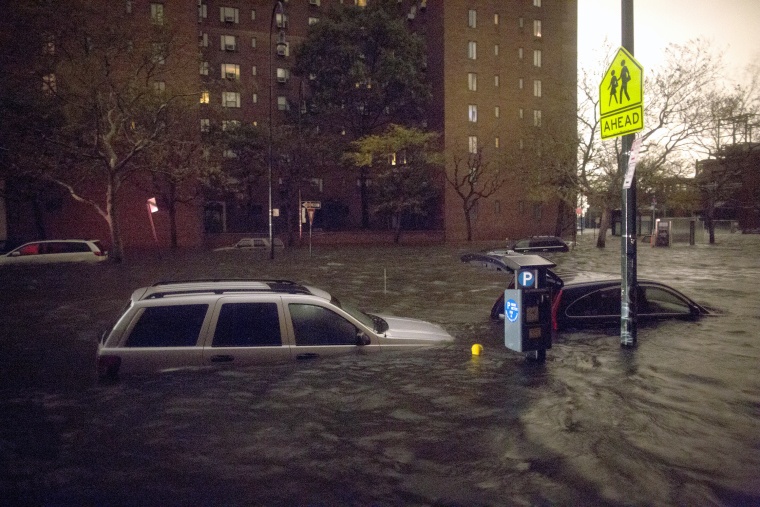One congressional controversy has ended, but another has already begun. Just hours after rallying enough votes to pass fiscal cliff legislation, Speaker John Boehner, R-Ohio, stunned a number of colleagues when he sent word that he would not bring up a bill containing more than $60 billion in emergency aid for victims of Superstorm Sandy. The indication from the Speaker's office is that it wouldn't come up Wednesday either, meaning the bill will have to be reintroduced in the 113th Congress when it convenes Thursday.
Representative Peter King, R-N.Y., called the move a "knife in the back" of his constituents. "The people who are out of their homes, the people who are cold, the people who are without food, the people who lost their jobs—they don't have the time to wait. We cannot just walk away from our responsibilities."
Beginning Tuesday night and throughout the day Wednesday, lawmakers from across the Northeast followed suit, piling scorn onto Republican leaders for not taking up a bill they insisted would have passed with bipartisan support.
"It's the most disgraceful action I've seen in the twenty years I've been here," said Rep. Jerry Nadler, D-N.Y., whose district includes parts of hard-hit Brooklyn.
"It's a betrayal of the people of the United States (and) a betrayal by the Speaker personally to the members of this House not to permit a vote." Rep. Pascrell, D-N.J., criticized the leadership as "schizophrenic", while Rep. Frank Pallone, D-N.J., who represents part of the devastated Jersey Shore, called the lack of action "deplorable" and expressed disbelief at the "politicizing of something that should not be political."
The aid package would have provided $60.4 billion to help homeowners and businesses rebuild, fund repairs to bridges, tunnels and roads, reimburse local governments for the salaries of first responders, and replenish shorelines in New York, New Jersey, and Connecticut.
It's unclear why Republican leaders opted not to bring it up, although some in their caucus may have been loathe to approve more federal spending on the heels of the bill to avert the fiscal cliff. A statement from Speaker John Boehner, R-Ohio, said only that he's committed to passing the bill this month.
FEMA told lawmakers in December that they have enough funding to support recovery programs through the spring, but advocates for the aid package said it would have funded programs that go beyond the emergency phase of the Sandy response. In fact, part of the money could have gone to the National Flood Insurance Program which is facing tens of thousands of claims and is on pace to run out of money within a week. The late October storm hit nearly a dozen states, but did the most damage in the Northeast. More than 640,000 homes and businesses were damaged or destroyed in New York and New Jersey alone.
